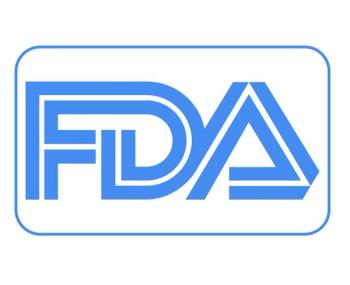
A Case of Attention Deficit Disorder?
Attention to ADD seems to be escalating. It almost seems to be a fad. Doesn’t everyone want to be able to focus better?
Your nurse’s note about your next patient indicates that the mother is bringing in her 18-year-old daughter. The note says something about the daughter not doing well in her first year of college. . . maybe she’s doing too much daydreaming. The mother noticed a newspaper article on ADD and had asked her daughter to answer the questions on a simple screening questionnaire. The results suggested that her daughter had ADD.
In recent years, more and more young and older adults are wondering if they have ADD. The media continues to inform the public that most children do not “outgrow” ADD, as was once thought, and that many adults who would have benefitted from therapy as a child were never treated.
Attention to ADD seems to be escalating. It almost seems to be a fad. Doesn’t everyone want to be able to focus better?
Recent headlines read that two football players from the Seattle Seahawks were being banned for 4 games for taking a banned substance,1 which just happened to be Adderall. The players were said to be appealing their case. Would they claim they were using it for ADD, or was it just to get more energy and focus during the football games?2 Medications like Adderall are controlled substances. You wonder once more about whether there is any possibility of getting into trouble for wrongful prescribing.
The best diagnostic tool for ADD is sophisticated psychological testing, but this is too expensive for most people. And even if such testing could be paid for, it is difficult to find psychologists expert enough to do the neuropsychological testing.
Well, here goes, you think. If you are uncertain about your diagnosis and or treatment plan, you can always check with one of your consultant or referral psychiatrists.
Dr: Mrs. Y, how are you? I gather you wanted me to see your daughter today.
Mrs. Y: Yes, thanks. She’s not doing as well as we think she can in college. We did one of those newspapers and on-line questionnaires about ADD and Annie has most of the symptoms we read about.
Dr: Sure, we can look into that. Annie, do you want your mother to stay in here as we talk?
Annie (pauses): OK. This isn’t personal stuff. I just can’t seem to focus. I’m daydreaming or getting distracted. And the classes are harder.
Dr: That’s helpful to have your mother here, because often the perspective of others helps with the diagnosis. (You might now be thinking of a medical disorder or an anxiety or depressive disorder.) You haven’t been more nervous or sad, being away from home now? Or having other new big stress?
Annie: Not really. I'm enjoying college otherwise, and feel that I've adapted well. I didn't think I had something like ADD because I wasn't hyperactive and did well in school until now.
Dr: That can still fit. Especially with girls, there's a more inattentive type of ADD, rather than hyperactive. And, if you're smart and emotionally engaged in what you're studying, you can find creative ways to learn well-enough and easily-enough-at least up to a point.
Annie: That does fit! I'm pretty well-focused right now, maybe because I'm so concerned with what's wrong and there are no distractions in this office. (Brief pause). And, you know, I have to admit - and I did tell my mother this-and thanks, mom, for not saying anything- that my roommate gave me an Adderall pill, and I could focus better for quite a while afterwards.
Dr: That makes sense, Annie, and I can understand why you did that, but that response isn't diagnostic of ADD. You can give Adderall to most anybody and they will temporarily focus better. The question is whether that response will continue over time if the medication is continued at a given effective dose, and whether there are any
Mrs. Y: And didn't I read somewhere that there are risks to the heart, especially among children?
Dr: Yes, I think that's correct, though I'm not completely up-to- date on the literature.3 As far as I know, it's safe with adults unless they have some sort of cardiovascular disease. Apparently, you don't, Annie, but I'll schedule that as part of your medical work-up. We should do a baseline medical check-up anyway, today.
Mrs. Y: So, will you prescribe something now, before she returns to school?
Dr: (feeling a bit anxious) If you both agree, we can do a trial, unless you want to get more verification with psychological testing or see a psychiatrist who specializes in treating people with ADD, although that will delay things and cost more.
Annie: Is it safe to try without more evaluation?
Dr: Yes, if we go slow, but sure. And, with most of the medications that can help ADD, it doesn't take too long to see.
Annie: OK. Good.
Dr: What we can do is to start a short-acting stimulant like Ritalin, and then gradually increase the dosage, unless there are side effects and/or no more improvement. You can return to see me in a week. Then if this seems helpful, we can even try a more convenient pill that will last most of the day, unless you just want to take something like Ritalin on and off.
Annie: Well, maybe on and off for now, when I'm in classes or studying. I don't think I need its effects to help me socially.
Dr: OK, although you may find out it helps in relationships, too. Let's try a 5 mg pill. It usually lasts 2 to 4 hours, and you can then repeat the dose. If you notice nothing, try 2 pills at a time, until you return. If we meet within a week, we can probably get something in place before you go back to college. And, at college, you may find they have some special resources for students with ADD that you can check into.
Mrs. Y: But what side effects should we watch for? I suppose we can look on-line for that information.
Dr: Well, watch for a little tremor, feeling restless, and maybe a headache. If you get something like this and it is mild, stick with the medication. Later, whatever dose you may stay on, we'll check your blood pressure to be sure it doesn't increase.
Mrs. Y: OK. Can we call your office in the meanwhile?
Dr: Sure, especially if you read or hear something that concerns you. Everything about today's visit will be on the computer, so even if I'm not available, our nurse may be able to help. By the way, don't take a pill within several hours of going to sleep, because it may make it more difficult to sleep. Any other questions (you notice you have exceeded your allotted time. . . )?
Mrs. Y and Annie: No.
Dr : If this option doesn't work well, there are other ways to try to help. (On the way out, you remind yourself to brush up on ADD.)
References
1. http://espn.go.com/nfl/story/_/id/8675242/richard-sherman-brandon-browner-seattle-seahawks-facing-4-game-suspensions-sources
2. http://www.usatoday.com/story/sports/nfl/2012/11/27/adderall-in-pro-sports/1730431/
3. Daughton J.
Newsletter
Enhance your clinical practice with the Patient Care newsletter, offering the latest evidence-based guidelines, diagnostic insights, and treatment strategies for primary care physicians.
































































































































